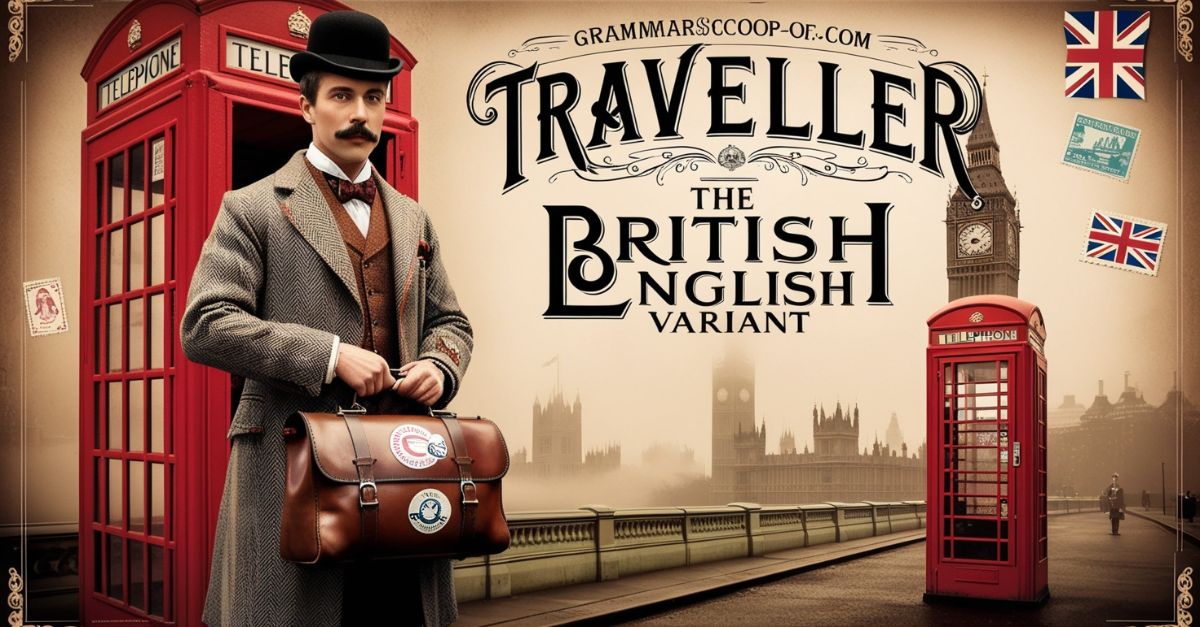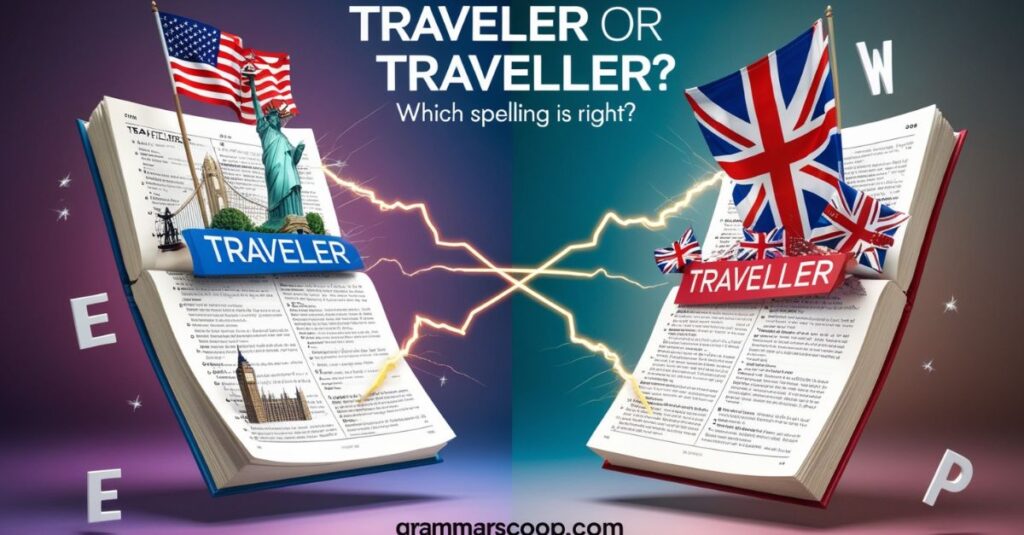Language can be as unpredictable as travel itself. If you’ve ever typed out the word and paused—”Is it traveler or traveller?”—you’re not alone. The difference might seem small, but it’s a reflection of deeper linguistic histories and regional preferences. So, which is correct? The short answer: both. But which one you should use depends on context.
Let’s take a closer look at the traveller vs traveler debate and break it down clearly so you’ll never second-guess again.
Why the Confusion Exists in the First Place
The confusion between traveller and traveler goes back to the broader divide between British and American English. English is a global language with many regional flavors, and this spelling variation is just one of many.
The Role of Noah Webster
In the early 19th century, American lexicographer Noah Webster began advocating for simplified and “Americanized” spellings of English words. He believed that the language should reflect how Americans actually spoke and wrote, not follow British tradition blindly.
As a result, many British double-letter spellings lost an “l” in the U.S.:
- Traveller → Traveler
- Cancelled → Canceled
- Labelled → Labeled
This standardization helped define American English and remains influential today.
British English Conservatism
Meanwhile, British English retained its traditional roots, including the double “l” in many words. In countries influenced by British rule (e.g., Australia, New Zealand, South Africa), the spelling traveller remained the standard.
Traveler: The American English Standard
If you’re in the United States or writing for an American audience, the correct spelling is traveler (with one “l”).
Where It’s Commonly Used
- USA (default spelling in education, government, media)
- Canada (although mixed usage, traveler is often used in media)
- Philippines (largely follows American conventions)
Examples from American Publications
- National Geographic Traveler
- The Solo Traveler’s Handbook
- Traveler’s Choice Awards by TripAdvisor
Industries That Prefer “Traveler”
- Tourism marketing
- Airline booking sites
- U.S.-based travel blogs and agencies
Example: “The seasoned traveler packed light, opting for versatility over variety.”
Traveller: The British English Variant

In contrast, traveller with double “l” is the accepted spelling in British English and many of its former colonies.
Where It’s Used
- United Kingdom
- Ireland
- Australia
- New Zealand
- South Africa
- India (uses British spelling in most educational settings)
Examples from British Media and Literature
- The Lonely Traveller by Tobias Smollett
- BBC Traveller segment
- Traveller Magazine (UK-based)
Ethnic Usage
In the UK and Ireland, Traveller can also refer to a distinct ethnic group:
- Irish Travellers: a traditionally nomadic people recognized as a minority
- Scottish Travellers: similar communities with rich cultural heritage
Example: “The traveller wandered through the Scottish Highlands, notebook in hand and stories in his eyes.”
How to Choose the Right Spelling
The good news is that neither spelling is wrong—but your audience, location, and platform should dictate which to use.
Quick Decision Guide:
| Factor | Use “Traveler” | Use “Traveller” |
|---|---|---|
| Writing for U.S. audience | Yes | |
| Writing for UK/Commonwealth audience | Yes | |
| Academic or formal U.S. writing | Yes | |
| Academic or formal UK writing | Yes | |
| SEO (U.S. market) | Yes | |
| SEO (UK, AUS, NZ) | Yes |
Follow Style Guides:
- APA, MLA, Chicago: Follow based on your regional version
- Oxford Style Guide: Uses British spelling, recommends consistency
Be Consistent
Once you pick a version, stick to it throughout the piece. Switching mid-text can confuse readers or seem unprofessional.
Real-Life Examples in Sentences
Understanding how each form appears in real writing helps cement their usage.
American English:
“As a frequent traveler, she knew exactly how to pack for a three-country tour.”

British English:
“The seasoned traveller preferred trains over planes, enjoying the slow passage through the countryside.”
These examples help highlight how traveller vs traveler is a matter of audience expectations.
Explore further:
Traveler or Traveller in Digital Use (SEO, Content, and Social Media)
When writing online content, understanding how each variant performs digitally can boost your content’s effectiveness.
Google Trends Comparison
Using Google Trends data:
- “Traveler” is searched far more in the U.S.
- “Traveller” dominates in the UK, Ireland, and Australia
Search Volume (Monthly Averages):
| Keyword | Global Volume |
|---|---|
| Traveler | 90,500 |
| Traveller | 40,800 |
| Traveller vs Traveler | 8,900 |
| Travellers spelling | 1,200 |
| Spelling of traveller | 720 |
Social Media Usage:
On Instagram:
- #traveler: 12M+ posts
- #traveller: 5M+ posts
Tip: If you’re aiming for a global audience, consider using both terms strategically within your content or tag them both.
Words Similar to Traveler vs Traveller
The same American-British spelling divide applies to many other words.
Common Examples:
| American English | British English |
|---|---|
| Traveler | Traveller |
| Color | Colour |
| Theater | Theatre |
| Catalog | Catalogue |
| Center | Centre |
| Canceled | Cancelled |
Being aware of these patterns helps maintain stylistic consistency in all your writing.
Common Mistakes and Grammar Myths
Is “traveller” wrong in American English?
Not wrong, but it will be flagged as a mistake by American grammar tools like Grammarly or MS Word.
Can “traveler” be used in British content?
Yes, but it will appear out of place. British readers may assume it’s a typo or Americanized content.
Do autocorrect tools fix this?
They usually follow your device’s keyboard settings. If your language setting is “English (UK),” it’ll suggest traveller.
Is there a difference in meaning?
In everyday usage, no. But as mentioned, “Traveller” (capitalized) can refer to ethnic groups in British contexts.
Final Thoughts: Traveler or Traveller
Yes and no. It depends on who you’re writing for. In academic, professional, or branded content, the correct regional spelling of traveller or traveler can affect credibility.
But in casual writing? Most readers will understand both. The key is consistency.
- Writing for an American audience? Use traveler.
- Targeting readers in the UK or Commonwealth? Go with traveller.
And always use tools like Grammarly, Hemingway Editor, or native speakers to review your content for regional nuances.
Quote: “The difference between the right word and the almost right word is the difference between lightning and a lightning bug.” — Mark Twain

FAQs about Traveler or Traveller
- Is traveler or traveller correct in IELTS or TOEFL?
Both are accepted. Just stay consistent with British (IELTS) or American (TOEFL) standards.
- Why does British English double the “l”?
Because of grammar rules that double consonants in two-syllable words ending in vowels before adding suffixes like “-er.”
- What’s the correct travellers spelling?
If you’re using British English, it’s travellers. In American English, it’s travelers.
- Can I use both spellings in the same article?
Avoid it unless you’re explaining the difference. Pick one based on your audience.
- Is “Traveller” ever a proper noun?
Yes. In the UK and Ireland, it refers to specific ethnic groups like Irish Travellers.
- What about traveling vs travelling?
Same rules apply: - Traveling → American
- Travelling → British

Lisa Morris is a seasoned blogger and language enthusiast with a passion for making grammar simple and engaging. At Grammar Scoop, she shares clear, concise tips that help readers master the rules of English with confidence.






